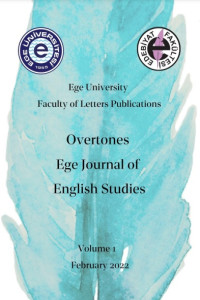Abstract
This paper explores and examines Nadine Gordimer’s recent novel No Time like the Present from a
dystopian perspective. It interrogates the utopian and dystopian visions that this renowned novelist has
presented, with an understanding that they may not simply be standpoints, but can be significant signs of the
evolution of various human societies in quest for change to the disillusionment embedded in change itself. The
paper underlines that dystopianism, which is often times viewed as a deliberate imaginative effort to disfigure
society, is rather examined in this paper as an expression of grim realities which society refuses to acknowledge.
The essay, however, concludes that Nadine Gordimer’s novel captures the inherent handicap of change, that of
not being reliable and further notes that; what is expected of change in a rosy imagination turns out many at
times into a nightmare. This is the predicament of the post-apartheid South Africans and postcolonial nations as
a whole especially when, having nurtured a common dream for a non-racial and classless society, they find
themselves abandoned and exploited by the very people who led the struggle for freedom. In discussing the
dystopian/stark reality that Nadine Gordimer presents, this paper reinforces the role of literature in education and
transformation
References
- Chifane, Cristina and Liviu-Augustin Chifane. “Reflections on Cultural Specificity and Dystopian Standardization in Chinua Achebe’s Novels.” Linguaculture 1 (2019): 69-85.
- Claeys, Gregory. The Cambridge Companion to Utopian Literature. Cambridge: Cambridge UP, 2010.
- Davies, Dominic. “‘Simple as the Black Letters on this White Page’: Nadine Gordimer’s Grey Politics in No Time Like the Present.” Études Littéraires Africaines 38 (2014): 83-92.
- Finnsson, Geir. “The Unexpected Popularity of Dystopian Literature.” Essay Submitted to the University of Iceland. September 2016. 1-25.
- Gordimer, Nadine. No Time Like the Present. London: Bloomsbury Publishing, 2012.
- Moylan, Tom. Scraps of the Untainted Sky: Science Fiction, Utopia, Dystopia. Oxford: Westview, 2000.
- Pataki, Jelena. “To Read and Learn: The Necessity for a New Definition of Dystopia and Bridging the Gap between the Old and Contemporary Dystopias.” Anafora 4.2 (2017): 421-39.
- Pawlicki, Marek. “Perspectives on Past and Present Realities: Nadine Gordimer’s Voice on Social and Political problems in South Africa.” Polityka Kultura 15 (2014): 173-186.
Details
| Primary Language | English |
|---|---|
| Subjects | British and Irish Language, Literature and Culture, Literary Studies, Literary Theory |
| Journal Section | Research Articles |
| Authors | |
| Publication Date | February 21, 2022 |
| Submission Date | September 19, 2021 |
| Published in Issue | Year 2022 Issue: 1 |


